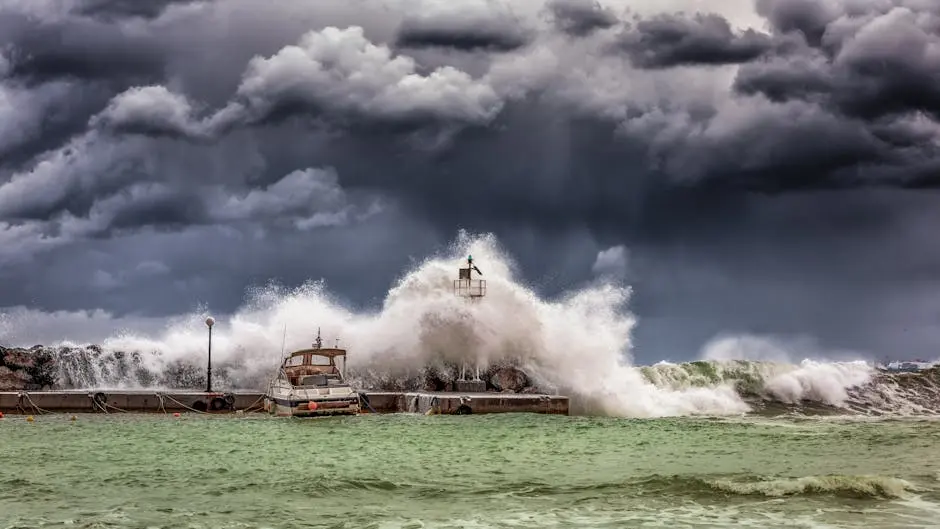Preparing for the 2024 Hurricane Season in Florida: What Homeowners Need to Know
With the 2024 hurricane season fast approaching, it’s crucial for Florida homeowners to be well-prepared. Understanding what to expect can make all the difference in securing your home and family. In this blog, we’ll explore everything you need to know, from forecasts to preparedness tips.
2024 Hurricane Forecast: What to Expect
Experts are predicting an active hurricane season for 2024. Knowing the forecast can help homeowners better plan and prepare for potential impacts. We’ll look at what the experts say and how it can impact Florida specifically.
The 2024 hurricane forecast suggests a higher-than-average number of storms, fostering concerns among residents and emergency management teams. Meteorologists are focusing on changes in oceanic temperatures and atmospheric conditions that may lead to increased hurricane activity. While forecasts are not foolproof, they help us understand possible scenarios, guiding preparations significantly.
“Why is this season expected to be more active?” you might wonder. La Niña conditions are one contributing factor, as they often lead to less wind shear in the Atlantic, making it easier for storms to form and strengthen. Additionally, the Atlantic Multi-decadal Oscillation, a natural cycle of sea surface temperature variations, plays a crucial part in the expected increase in activity. Understanding these elements allows homeowners to better assess their personal risk.
Key Preparations Every Homeowner Should Make
From securing windows to ensuring you have enough supplies, preparation is key. This section will cover essential steps homeowners should take to safeguard their properties against potential hurricane damage.
One of the most crucial steps is to fortify your home’s structure. This includes installing storm shutters and reinforcing garage doors, which are vulnerable entry points during a storm. Many homeowners also choose to update their roofs with hurricane straps for added security. Furthermore, clearing debris and trimming trees around your property can prevent damage caused by high winds.
Stocking up on non-perishable food items, water, and other essentials is vital for surviving post-storm conditions when power outages are common. Experts recommend having at least a week’s worth of supplies on hand. Consider assembling a basic toolkit including flashlights, batteries, and first-aid supplies to address immediate needs.
If you’re looking to make larger investments, consider impact-resistant windows that not only protect against debris but also potentially lower your insurance premiums. Additionally, creating a comprehensive disaster plan tailored to your household’s specific needs is invaluable. This plan should encompass evacuation routes, designated meeting places, and communication strategies to maintain contact with loved ones.
Understanding Your Insurance Coverage
Knowing the details of your home insurance policy can save you from financial strain in the aftermath of a storm. We’ll delve into what you should look for in your coverage and how to make sure you’re adequately protected.
Standard home insurance often doesn’t cover flood damage, which can be a major oversight for Florida residents. It’s crucial to inquire about additional flood insurance if your property is in a flood-prone zone. Examine your policy for deductibles specifically related to hurricane damage, as these can differ significantly from other types of claims.
It’s wise to document your belongings by taking photos or videos and keeping receipts of major purchases in case of a future claim. This documentation can facilitate the claim process and ensure you receive fair compensation. Don’t forget to regularly update your insurance policies to adjust for any improvements or acquisitions.
Evacuation Plans and Safety Tips
Evacuating safely is crucial during severe weather events. Learn how to create an effective evacuation plan, familiarize yourself with local routes, and understand safety measures to protect your family.
Design an evacuation plan that accounts for the unique needs of all family members, including pets and individuals with special needs. Identify several evacuation routes, keeping in mind that primary roads may be congested. Stay informed on which shelters are pet-friendly if you’re evacuating with animals.
Preparation doesn’t stop at leaving. You should also know how to safely shut off utilities such as gas and electricity to prevent further hazards. It’s also advisable to have an out-of-state contact for relaying information should local communications be disrupted.
Staying Informed: Reliable Sources for Updates
Access to accurate information is vital during a hurricane. We’ll provide a list of reliable weather channels, apps, and websites to keep you updated with the latest news and alerts.
Always stay connected with resources like the National Hurricane Center for official hurricane updates and potential warnings. Local authorities often have apps and phone alerts to notify residents of evacuation orders and emergency updates, so it’s worth downloading these to your phone well ahead of time.
Consider subscribing to services or channels that specifically cover your local area, as they offer the most precise and relevant information, ensuring you aren’t caught off-guard during crucial moments.
Embrace Preparedness for a Safer Hurricane Season
Navigating the 2024 hurricane season with proper preparation and understanding can ensure the safety and well-being of both you and your property. By staying informed and taking proactive measures, you can face the season with confidence and resilience.

